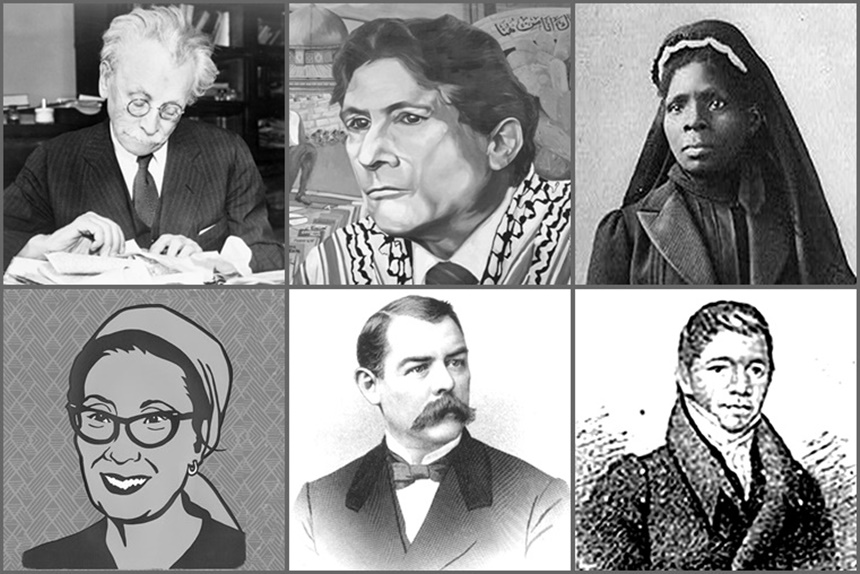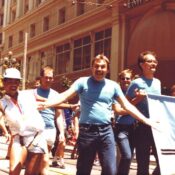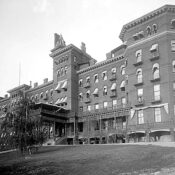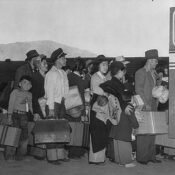This series by American studies professor Ben Railton explores the connections between America’s past and present.
In early October 1863, with the Civil War still decimating every corner of American society, President Abraham Lincoln issued a proclamation. In it, he invited “my fellow-citizens in every part of the United States, and also those who are at sea and those who are sojourning in foreign lands, to set apart and observe the last Thursday of November next as a Day of Thanksgiving.” Even amidst one of the most divided and destructive moments in American history, Lincoln argued for the value of giving thanks, of collectively reflecting on those things for which we are grateful.
I couldn’t agree more. There’s a great deal for which I’m thankful in 2023, including loved ones about whom I’ve had the chance to write in this space, colleagues near and far, and you, Saturday Evening Post readers and friends. But as an American Studier, I’m also profoundly thankful for inspiring figures from our history, individuals who remind us of the best of our community and ideals. Here are my brief thanks for six such figures.
William Apess (1798-1839)
For last year’s Thanksgiving column, I highlighted Wamsutta James and Native American efforts to reframe the holiday as a National Day of Mourning. William Apess, the fiery Pequot minister and activist who offered “An Indian’s Looking-Glass for the White Man” and a “Eulogy on King Philip,” would certainly share that sense of mourning and alternative vision of the holiday. But Apess never stopped fighting for a better and more just future for every one of his beloved communities, from the Native American town of Mashpee to the United States of America. I’m thankful for William Apess’s critical patriotic fight for the best of us.
Susie King Taylor (1848-1912)
Of the many things that folks who want to minimize our teaching of African American history get wrong, high on the list is that such histories can serve only to cause pain or shame. Those and all other hard emotions are certainly part of our histories and need to be engaged, but so too are the most inspiring effects — like those caused by the story of a young woman who escaped slavery as a teenager during the Civil War, became a nurse and educator for U.S. Colored Troops regiments, and worked as a lifelong advocate for fellow Civil War nurses, publishing a moving autobiography about the experience in the process. I’m thankful for all the ways Susie King Taylor refutes our worst prejudices.
Albion Tourgée (1838-1905)
A U.S. Army Civil War veteran from Ohio who moved to North Carolina to work as a judge during Reconstruction, an author who wrote historical novels about that era and the fight for African American rights and equality, a lawyer who represented Homer Plessy before the Supreme Court in his fight against racial segregation, and an anti-lynching activist who was Ida B. Wells’s most consistent friend in that national campaign, Albion Tourgée quite simply exemplifies what it means to be an ally. I’m thankful for his lifelong modeling of such solidarity.
Abraham Cahan (1860-1951)
It’s all too easy to see the fights on behalf of different oppressed American communities as distinct, and even perhaps at odds. But throughout his life and career, the Russian Jewish immigrant turned radical journalist, editor, and author Abraham Cahan pulled together a number of such fights — for the working class and against Gilded Age stratification, for Jewish Americans and against anti-Semitism, for immigrant communities and against xenophobia. In his best works, from short stories like “A Sweatshop Romance” to his advice column “The Bintel Brief” in the Yiddish-language newspaper he founded, Cahan pulled together all those issues with humor and humanity. I’m thankful for his voice.
Yuri Kochiyama (1921-2014)
While imprisoned at a World War II internment camp with her family, Yuri Kochiyama created a community of fellow young people to share letters with Japanese American soldiers. While fighting for her community with Asian Americans for Action in 1960s New York, Kochiyama befriended and fought alongside Malcolm X. While leading the successful 1970s and ’80s campaign to secure reparations for interned families and their descendants, Kochiyama took part in a takeover of the Statue of Liberty on behalf of Puerto Rican independence. In her final decades of life, Kochiyama opposed the War on Terror and took controversial positions on political prisoners around the world. I’m thankful for a life of incessant, impassioned activism against wrongs and injustices everywhere.
Edward Said (1935-2003)
For all of us teachers, academics, and scholars hoping to add our voices and ideas to public conversations, there’s no better 20th century American model than the literary critic, theorist, professor, and public intellectual Edward Said. Said’s 1978 book Orientalism established not just that titular concept (of a mythological “Orient” in the Western imagination) but an entire field of study, and is just the tip of the iceberg when it comes to his influential ideas. And nothing on that list is more important nor more relevant here in late 2023 than Said’s lifelong scholarship on and advocacy for the people of his native Palestine. I’m thankful for a powerful reminder that public scholarship and public engagement can and should go hand in hand.
As we take the opportunity this week to reflect on all we’re grateful for, amidst another moment nearly as divided and in need of those reflections as was Lincoln’s, let’s make sure to include the best of our shared histories and inspiring stories.
Become a Saturday Evening Post member and enjoy unlimited access. Subscribe now




Comments
To the folks who are angered by this column, I’d ask you to look inside and try to figure out why.
Ben
Tony, you could take the point of view that Harry S Truman did: “The only new thing in the world is the history that you don’t know.”